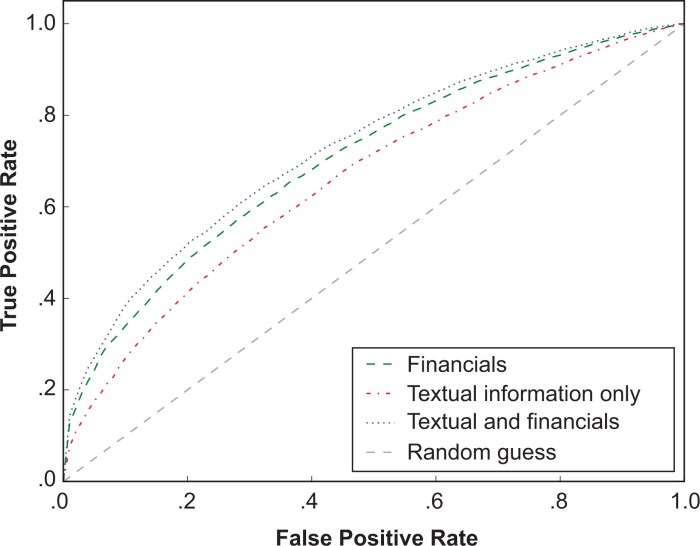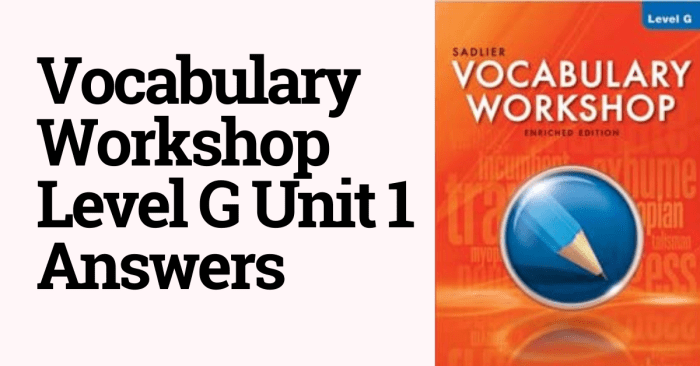Embarking on Vocabulary Workshop Level G Unit 1, we delve into the realm of vocabulary development, exploring its significance and delving into effective strategies for enhancing vocabulary. By understanding the role of root words, prefixes, and suffixes, we lay the foundation for vocabulary expansion.
Furthermore, we emphasize the importance of contextualizing vocabulary, utilizing authentic texts and real-life scenarios to foster meaningful learning. Through multiple exposures to new words, students develop a deeper understanding and retention.
Vocabulary Development: Unit 1: Vocabulary Workshop Level G Unit 1
Vocabulary development plays a crucial role in Unit 1, laying the foundation for students to comprehend and express themselves effectively in English. By expanding their vocabulary, students enhance their ability to understand texts, communicate their ideas, and develop critical thinking skills.
Activities and Strategies for Vocabulary Enhancement
- Interactive games, such as word puzzles, charades, and Pictionary
- Vocabulary lists and exercises that focus on root words, prefixes, and suffixes
- Storytelling and discussion activities that introduce new words in context
The Role of Root Words, Prefixes, and Suffixes, Vocabulary workshop level g unit 1
Understanding root words, prefixes, and suffixes helps students decode unfamiliar words and expand their vocabulary. Root words are the core meaning of a word, while prefixes and suffixes modify the root word’s meaning or part of speech.
Contextualizing Vocabulary
Teaching vocabulary in context is essential for students to grasp the meaning and usage of new words. This can be achieved through:
Authentic Texts and Real-Life Scenarios
- Reading authentic texts, such as articles, stories, and poems
- Engaging in role-plays and simulations that require students to use new words in real-life situations
Multiple Exposures to New Words
Students need multiple exposures to new words to retain them in their long-term memory. This can be facilitated by:
- Repeated encounters with words in different contexts
- Active recall techniques, such as flashcards and quizzes
Assessment and Monitoring

Regular assessment is crucial to monitor students’ vocabulary growth and identify areas for improvement.
Formative and Summative Assessments
- Formative assessments: Informal checks, such as class discussions and quizzes, to track progress and provide feedback
- Summative assessments: Formal evaluations, such as vocabulary tests, to measure overall vocabulary growth
Tracking Student Progress and Feedback
Tracking student progress allows teachers to adjust instruction and provide targeted feedback. This can be done through:
- Maintaining vocabulary journals
- Regular feedback on assignments and assessments
Vocabulary Workshop Activities

Vocabulary workshops provide opportunities for students to engage with vocabulary in interactive and meaningful ways.
Game: Word Chain Charades
Materials:List of words, timer
Learning Objectives:Vocabulary recall, teamwork, communication
Differentiation:Vary the difficulty of words based on student ability
- Divide students into teams.
- One student from each team takes turns acting out a word from the list while their team guesses.
- The team with the most correct guesses wins.
Technology Integration
Technology can enhance vocabulary development by providing interactive and engaging learning experiences.
Online Tools and Resources
- Vocabulary apps and websites, such as Quizlet and Vocabulary.com
- Online dictionaries and thesauruses
- Educational games and simulations
Interactive Vocabulary Lessons
Technology can be used to create interactive vocabulary lessons that engage students and promote learning. This can be achieved through:
- Digital flashcards with images and audio
- Interactive quizzes and games
- Virtual field trips and simulations
Answers to Common Questions
What is the significance of vocabulary development in Unit 1?
Vocabulary development in Unit 1 lays the foundation for effective communication, critical thinking, and academic success.
How can I teach vocabulary in context?
To teach vocabulary in context, use authentic texts, real-life scenarios, and provide multiple exposures to new words.
What are effective methods for assessing vocabulary growth?
Effective methods for assessing vocabulary growth include formative and summative assessments, such as quizzes, writing assignments, and vocabulary logs.